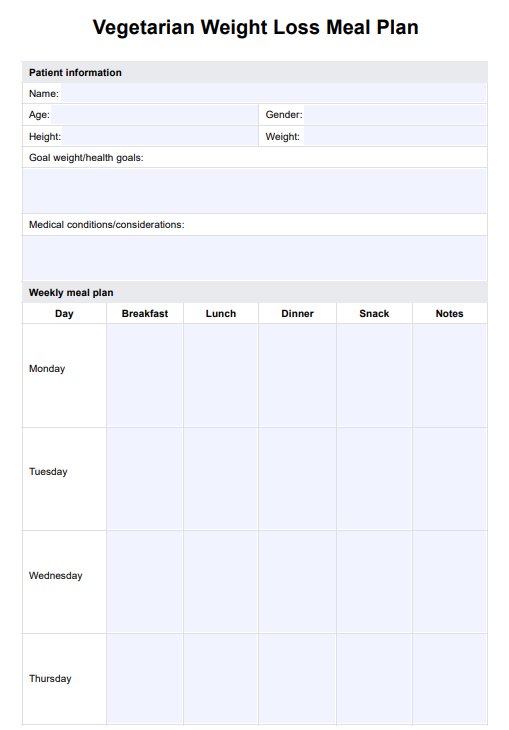Yes, vegetarian diets can be effective for weight loss when appropriately planned. A balanced diet that includes nutrient-dense foods like leafy greens, whole grains, and plant-based proteins provides essential nutrients to support a healthy metabolism.

Vegetarian Weight Loss Meal Plan
Help clients lose weight, boost health, and maintain balance with this Vegetarian Weight Loss Meal Plan. Get this PDF template for free.
Vegetarian Weight Loss Meal Plan Template
Commonly asked questions
To avoid weight gain on a vegan diet, focus on a vegan meal plan rich in whole foods like vegetables, legumes, and healthy fats. Limit processed foods, track how many calories are consumed, and monitor portion sizes.
A vegetarian diet can reduce the risk of heart disease by including various plant-based, nutrient-rich foods. A meal plan emphasizing leafy greens, whole grains, and healthy fats supports cardiovascular health while helping you lose weight healthily.
EHR and practice management software
Get started for free
*No credit card required
Free
$0/usd
Unlimited clients
Telehealth
1GB of storage
Client portal text
Automated billing and online payments











